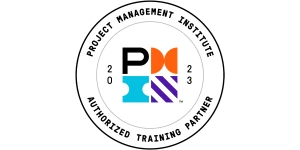AI and Healthcare Innovation: Everything You Need to Know
Artificial intelligence (AI) and machine learning (ML) are relatively new technologies that have considerably impacted the healthcare sector. AI and ML are already improving productivity in the sector and still hold great potential to move the industry forward.
Learn more about our Six Sigma training.
How Is AI Impacting Healthcare?
Artificial intelligence is transforming healthcare in various ways, including:
1. Diagnosis
AI and ML tools are now helping doctors to diagnose patients quickly and accurately. For example, AI systems can analyze X-rays, CT scans and MRIs to recognize specific ailments. Doctors are limited in how many medical images they can analyze in a given period, but an AI system can analyze thousands of images quickly. The result isn’t always perfect, but it can help spot medical conditions faster than doctors would when analyzing the same volume of medical images.
AI chatbots can also collect information from patients and diagnose medical conditions, similar to how a doctor asks about your health and diagnoses the relevant issue. Patients tell these chatbots their symptoms, and the chatbots analyze the symptoms to provide a proper diagnosis. Of course, the diagnosis isn’t perfect, but AI goes a long way in recognizing common diseases.
2. Drug discovery
Pharmaceutical research is an arduous task with lots of trial and error. Scientists and medical researchers spend countless hours formulating the perfect compounds to treat specific ailments and come up short in most cases. But AI offers much help– it analyzes chemical compounds at extraordinary rates to predict their efficacy and toxicity. AI systems save researchers the time and effort to put to use elsewhere. It significantly reduces the timeline for developing new effective treatments.
3. Virtual assistants
AI is synonymous with a virtual assistant to everyday people, even though that’s just one aspect. AI has enabled medical providers to build virtual nursing assistants for patients. These assistants can answer mundane medical questions, e.g., the dosage of drugs and the ideal time to take them.
Thanks to AI, people can now work around with their “personal nurse” in their pockets. These assistants are usually standalone apps or apps built atop an existing messaging platform like Messenger and Skype.
4. Fraud prevention
Healthcare is a massive industry, meaning it deals with a lot of fraud. Hospitals, insurance providers, and other medical firms incur hundreds of billions of dollars in annual losses and constantly seek ways to cut this loss. AI can help recognize fraud patterns in insurance claims and medical providers performing unnecessary tests to claim higher insurance payments.
Limitations of AI in healthcare
The first limitation of applying AI in the healthcare sector lies in trust. Many people don’t trust AI in any medical field, even when proven reliable in specific cases. Many potential beneficiaries are skeptical of using virtual medical assistants to aid their recovery. You can tackle this problem with continuous education and patience, letting people adapt to the ever-evolving healthcare sector.
The other limitation is technological. AI systems still have many technological barriers to harnessing their potential in the healthcare sector. For instance, a chatbot might give wrong prescriptions or unreliable diagnoses, which is unacceptable in a field with little room for error. AI systems are becoming much more sophisticated daily—current systems are exponentially better than what we had a decade ago. However, there’s still a long way to go before AI reaches mainstream acceptance in the healthcare sector.
Should My Healthcare Ventures Invest In AI?
Yes, AI and ML are rapidly transforming the healthcare sector, and anyone who doesn’t pay attention might get left behind. Whether you’re a pharmaceuticals firm, insurance provider, hospital, diagnostics firm, or whatever, you should start looking at implementing AI to improve processes for yourself and your customers. You can start with simple aspects like chatbots before moving on to more complex elements like AI diagnosis and drug development. What’s important is that you start early and do not get left behind in the competition.
SixSigma.us offers both Live Virtual classes as well as Online Self-Paced training. Most option includes access to the same great Master Black Belt instructors that teach our World Class in-person sessions. Sign-up today!
Virtual Classroom Training Programs Self-Paced Online Training Programs







